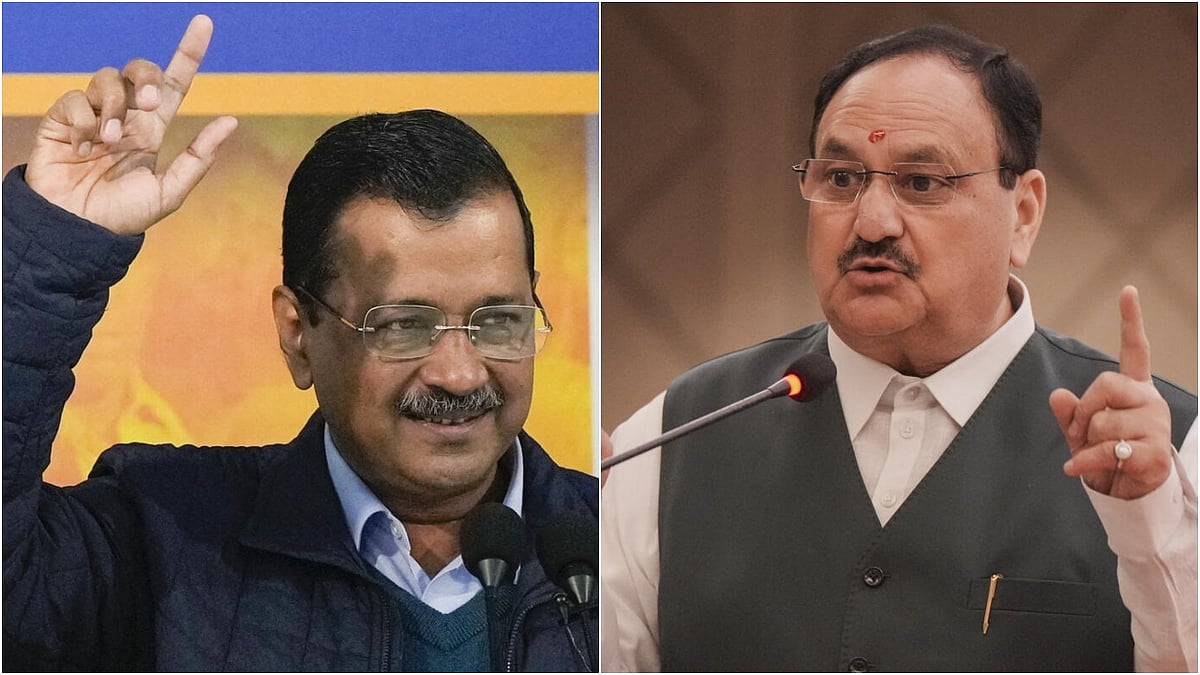 |
|
The upcoming Delhi Assembly Elections in 2025 are shaping up to be a significant political showdown, primarily fueled by the recently released BJP manifesto. The manifesto, brimming with promises of various 'freebies' – a term often used to describe government-sponsored welfare schemes – has sparked immediate controversy and accusations of plagiarism from the Aam Aadmi Party (AAP). The BJP's move has been interpreted by political analysts as a strategic attempt to counter AAP's dominant position in the Delhi political landscape, a position largely built on the popularity of its own welfare initiatives. The scale and scope of the proposed BJP freebies, mirroring several key features of existing AAP schemes, have ignited a fierce debate about the feasibility, financial implications, and overall impact of such policies on the city's governance and economy. The debate encompasses not only the financial burden but also broader issues concerning sustainable development, economic growth, and the long-term consequences of relying heavily on populist measures to secure electoral victory.
AAP chief Arvind Kejriwal's response to the BJP manifesto has been swift and pointed, directly accusing Prime Minister Narendra Modi and the BJP of outright copying the AAP's successful model. Kejriwal has framed the BJP's actions as an acknowledgment of the efficacy and widespread popularity of AAP's welfare programs, highlighting the impact of these initiatives on the lives of Delhi's residents. This narrative is carefully crafted to undermine the BJP's claim of originality and to portray the BJP's manifesto as a mere imitation of proven success, thereby diminishing its credibility. Kejriwal's strategy focuses on highlighting the apparent contradiction between the BJP's past criticism of AAP's welfare model and its current adoption of similar policies. He aims to leverage this apparent hypocrisy to secure the support of voters who have directly benefited from AAP's initiatives and are likely to view the BJP's offerings with skepticism.
The political implications of this confrontation extend far beyond the confines of the Delhi Assembly elections. The 'freebies' debate reflects a larger national conversation about the role of government welfare schemes in India's political and economic landscape. The exchange between the BJP and AAP is serving as a testing ground for various political strategies and messaging techniques, informing the broader narrative of welfare politics in the country. The outcome of the 2025 Delhi elections will be closely watched not only for its impact on the Delhi state government but also as an indication of the broader public sentiment toward welfare-focused political agendas and their long-term viability. The debate also involves considerations of fiscal responsibility, economic growth, and effective governance. Experts are divided on the long-term effects of implementing expansive welfare programs and the potential sustainability of financing these schemes in the future. The upcoming election will likely be characterized by intense campaigning, rigorous debate, and deep scrutiny of the economic and social implications of each party's promises.
Furthermore, the strategic timing of the BJP manifesto release and the subsequent AAP response suggests a calculated move on both sides. The proximity to the upcoming elections makes this a high-stakes political battle, with each party leveraging every available strategy to garner public support. Beyond the immediate electoral impact, the long-term implications for the political discourse in India are significant. The issues of welfare economics, government expenditure, and public trust in political promises are all being placed under intense public scrutiny. This debate serves as a critical juncture in shaping the future of political discourse in the nation, potentially influencing policy decisions and electoral strategies for years to come. The events underscore the need for a thorough analysis of the effectiveness and sustainability of various welfare models in achieving equitable outcomes while maintaining fiscal prudence. This debate transcends party politics; it shapes the fundamental discussion about the role of government in the welfare of its citizens and the methods employed to achieve it.
In conclusion, the BJP's Delhi manifesto and the ensuing controversy with AAP highlight a crucial point of contention in Indian politics. The battle over 'freebies' is not simply a campaign tactic; it represents a significant clash of ideologies concerning welfare economics and political strategies. The outcome of this election will likely have ripple effects across the nation, impacting political strategies and shaping the discourse surrounding welfare schemes in Indian politics for years to come. The focus now shifts towards the electorate, who hold the power to determine the ultimate victor and, in doing so, influence the trajectory of governance and welfare initiatives in Delhi and beyond.
